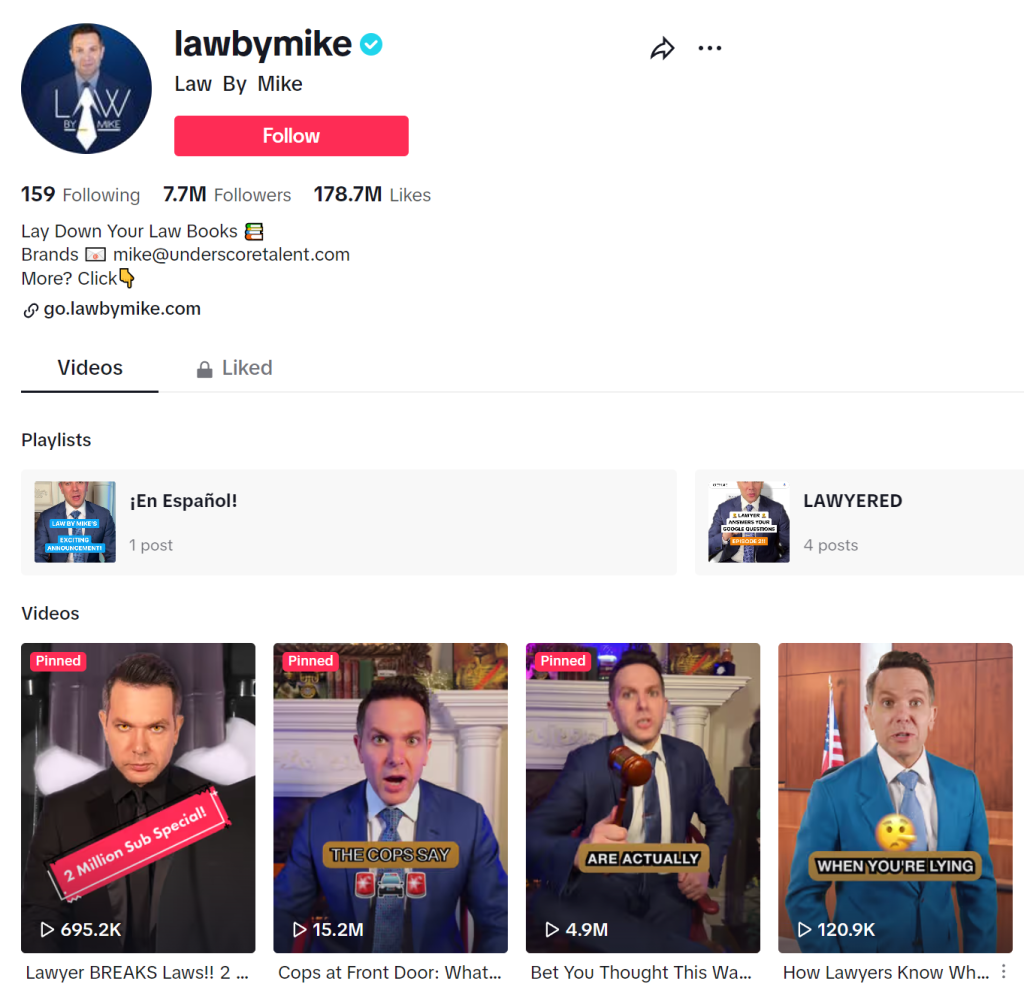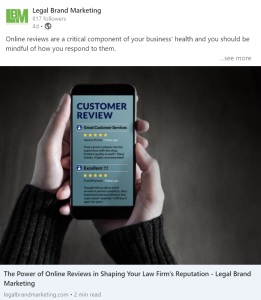In the competitive world of legal services, content marketing has emerged as a vital tool for law firms to establish their expertise, build client trust, and generate leads. Relative to the practice of marketing as a whole, however, content marketing is a relatively new phenomenon which has higher unpredictability and higher potential for return than more traditional methods.
What exactly is content marketing? Let’s begin by defining the term before we discuss what works, what doesn’t, and how to strategize your marketing efforts in the digital age.
What is Content Marketing?
Content marketing is a strategic marketing approach focused on creating and distributing valuable, relevant, and consistent content to attract and retain a clearly defined audience — and, ultimately, to drive profitable customer action. Instead of pitching products or services, content marketing provides potential customers with useful and informative content that solves their problems or enhances their knowledge.
This type of content thrives on social platforms, particularly video-based platforms like TikTok, where businesses can directly interface with potential customers while building value around their brands with effective, informative, and valuable original content.
What Works in Content Marketing for Law Firms
1. Educational and Informative Content
Successful content marketing in the legal domain hinges on providing value through educational and informative content. Law firms can position themselves as industry authorities by publishing articles, blog posts, and videos that answer common legal questions or explain complex legal issues in layman’s terms.
Consider “lawbymike” on TikTok. While an extreme example, his account boasts 7.7 million followers and is closing in on 200 million likes. His practice, which focuses primarily on personal injury, has undoubtedly benefited from his popularity, which was built almost entirely on educational videos.

2. Storytelling and Case Studies
Utilizing storytelling, particularly through case studies, can be highly effective. Sharing success stories or client testimonials makes the firm’s services relatable and demonstrates its competence and success in real-world scenarios.
In this image, attorney Lisa Bloom celebrates an $8.4 million judgment for her client, signaling to other potential clients that Lisa Bloom is both effective as an attorney and that she cares about the people her firm represents.

3. Utilizing Various Formats and Channels
Diversifying content across various formats – blogs, videos, podcasts, infographics – caters to different audience preferences. Sharing this content across multiple channels like social media, newsletters, and webinars broadens its reach.
It’s important to remember that some types of content work on specific platforms. You wouldn’t expect a blog post to perform well on TikTok, would you? No, of course not, but perhaps that same blog post could demand attention on LinkedIN or Facebook. Tailor your content marketing strategy to fit with the platforms that matter most to your firm.
As you can see, our business, Legal Brand Marketing, is on LinkedIN (left) and TikTok (right), among other platforms, but in order to accommodate the demands of each respective platform, we post written works on LinkedIN and original video content on TikTok. Appealing to the demands of each platform will maximize your outreach for your brand.


What Doesn’t Work
1. Overly Promotional Content
Content that is overtly sales-oriented or self-promotional often fails to engage potential clients. Modern audiences seek value and information, not a sales pitch. You have to provide an experience that is unique from the run-of-the-mill advertisement that a potential client might see during a commercial break.
2. Neglecting Audience Needs
Content that doesn’t address the specific needs or questions of the target audience is likely to fall flat. Understanding the client base and tailoring content to their legal concerns is crucial. When a user asks a question, and they inevitably will since the legal domain is a mystery to the average person, use that opportunity to engage directly with the question and potentially convert that user into a client.
3. Ignoring Data and Feedback
Not utilizing analytics to track content performance is a missed opportunity. Data provides insights into what topics and formats resonate with the audience and should inform future content strategies.
Analytics will illuminate more about your content than simply views and likes. Platforms like TikTok will provide you with information about user demographics, including age, nationalinity, and gender. You can discern at what point a user scrolled away from a video, allowing you to better understand where your content might be falling short. It is critical to take time to study your analytics in order to improve your content marketing.

Strategies to Use
- Consistent and Regular Publishing
Consistency in publishing fresh content is key to keeping the audience engaged and improving online visibility. If your audience can expect your content at a regular cadence, then they will begin to associate your brand with trustworthiness and dependability.
- Engaging in Thought Leadership
Law firms should strive to publish thought-provoking content that discusses industry trends, new laws, or legal opinions, positioning the firm as a thought leader.
- Interactive and Client-focused Content
Incorporating interactive elements like Q&A sessions, webinars, or comment sections can foster engagement. Content should always be client-focused, addressing common client challenges and questions.
Strategies to Avoid
- Ignoring Mobile Optimization
In today’s mobile-first world, content that isn’t optimized for mobile devices can alienate a significant portion of the audience. Ensure that you explore your own pages with a mobile device before inviting others to do the same.
- Inconsistent Brand Messaging
Content that varies widely in tone or strays from the firm’s core values and messaging can confuse the audience and dilute brand identity. A confused brand identity signals to the viewer that your firm is confused as well.
- Skipping Proofreading and Quality Checks
Content riddled with errors or legal inaccuracies can harm a firm’s credibility. Rigorous proofreading and quality checks are essential. Something as simple as a misspelled word can discourage a potential client from utilizing your firm’s services.
What You’ve Learned
Content marketing, when executed correctly, can be a powerful tool for law firms to demonstrate expertise, build trust, and attract clients. It requires a focus on value-driven, informative content that is client-centric and SEO-optimized. Law firms should avoid overly promotional material, inconsistent messaging, and neglecting mobile optimization.
If you’re looking to generate high-quality leads, we’re here to guide you through every step of your journey. Contact us to learn how we can help your firm thrive in the digital landscape.






